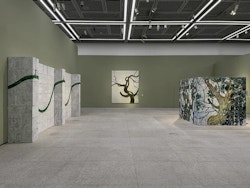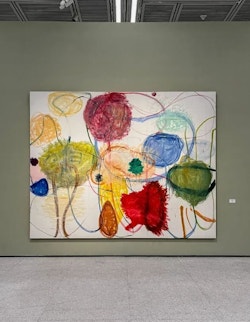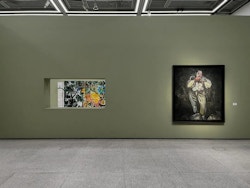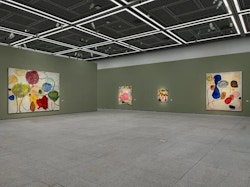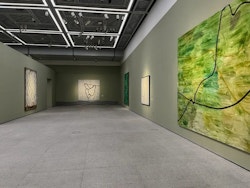Zhang Enli
After Emptiness
12 November 2022—5 February 2023
Hunan Museum, Changsha, China
In the Chinese modern art history, there was a correction of appellation concerning the art medium: after the founding of the People’s Republic of China, the generally accepted appellation of "foreign painting" or "western painting" in the first half of 20th century was swiftly substituted by the name of "oil painting" which was named after its material feature. However, there was difference of only a single word, the appellation of oil painting interpreted the promotion, dissemination and practice of it, as well as corresponding transformation and construction of modern art in China, as the practicing process of learning advanced culture to nurturing new culture. From the perspective of "culture-politics", the appellation of oil painting suggested that China's modernization was an internalization process oriented to the "world picture".
How to interpret the internalization process of China’s modernization, or rather, how to establish the historical consistency between China’s contemporary art and China’s modern art, is the focus and thinking topic of this exhibition. In fact, when facing the current Chinese society, there were numerous people in China’s contemporary ideological sphere advocated that the public should grasp and deal with the historical correlation among three traditions of Confucian culture, socialist revolution and the reform and opening up. Moreover, scholars coincidentally mentioned that it was necessary to confront the significance of the entire traditional Chinese historical culture to the historical foundation and spiritual foundation of modern China—as an inspiration for ideological plans, the transcendence of spacetime displayed by Chinese civilization has undoubtedly set up a larger historical and cultural framework for the topics covered in this exhibition, which is a reflection of Chinese contemporary art.
Foundation of this exhibition consists of three solo art exhibitions of Chinese artists: Zhang Enli’s After Emptiness,Wang Yuyang's The Marvelous Clouds and Su Xinping’s Long Journey. As for the concept and practice of art, although three artists own different orientations, from their artworks, the public could capture a modern experience of Chinese art represented by oil painting throughout the ancient and modern times: one is universal living world that keeps pace with the times, and the other is the value world of thinking and presenting "who we are", the two worlds are dialectically unified in the narrative and practice of self-history. Therefore, in a sense, the "civilization" here does not mean a context of the past, on the contrary, it is a scene of historical possibility about how we move towards the future.
